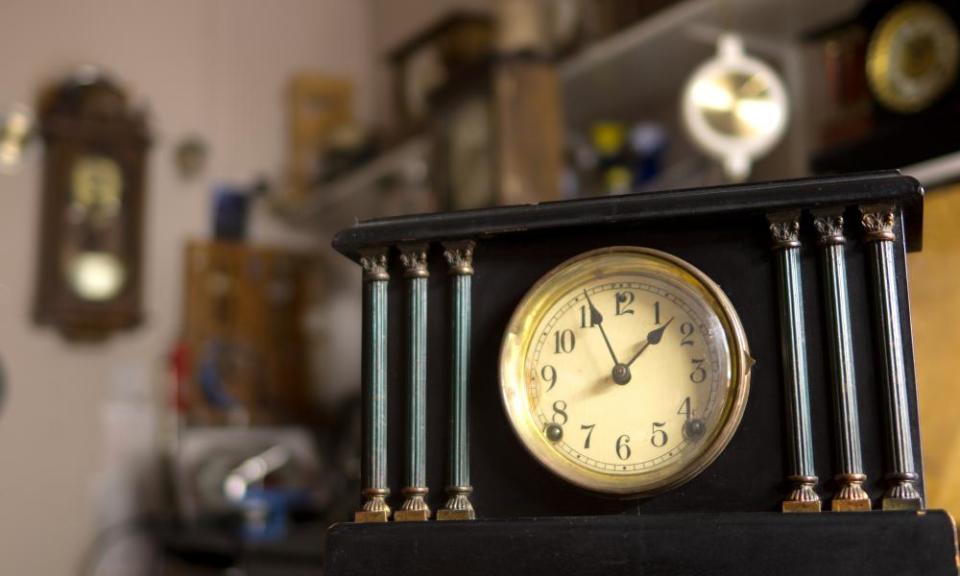Sometimes I fleetingly feel my parents' presence, as if they were still alive

The older I get the sketchier my memories of my parents become.
Yes, their images remain frozen in the photo boards on our bedroom wall and in frames on mantelpieces about the house. For a time after they died my prosaic memories of them were so vivid; something of them continued on in the places where we’d shared so much life.
But time and geography seem to have conspired so that now I have to stop, concentrate, and summon my recall of them. How easily we can slip from active memory.
For a few years after Dad died, a decade ago now, I’d hear his voice often. Like when I’d pass certain pubs in Melbourne that he’d sworn me off as we’d driven past when I was a kid (“Blood-houses – don’t ever set foot in there.”) or later as he eschewed the posh restaurant (“Looks like a clip-joint.”) for sausages and chips at the local RSL. Each Saturday I’d recall from habit the morning telephone call when he’d tell me that he was “off to the match with the boys – what about you?”. This was the weekly Melbourne Cricket Ground ritual when he’d catch up with a stoic band of old mates, no matter who was playing, until he was the sole survivor, too weak and captive of dementia to catch the tram in any more.
The saddest thing he ever said to me was, “Paul, I don’t think I’ll renew my membership this season.”
He didn’t. He died before the first round.
He still feels close on the rare occasions I go to a match at that football mecca, a place where I’ll always catch-up, unarranged, with blokes I’ve known for 45 years, among whom so much history is understood without ever needing to be spoken of.
Those three of our dead parents seem a long, long way away to me now
After Mum died I’d also hear her whenever The Simpsons came on. “So you think that’s suitable for the children, do you?” she’d ask, looking at me but addressing their mother.
For those first few years after we buried her eight years ago in a week or so, we’d joke (affectionately) at Christmases or 21st birthdays or weddings about how, when it came to the group photo, Mum would shoo the in-laws (most notably my wife and brother-in-law) out of the frame with a declaration – “Family only” – that implied a hard-heartedness that she never possessed. She was soft and loving, yet compromised by her troubles and, like so many women of her generation, so many regrets. And even if I can’t hear or even adequately imagine her voice any more, that, perhaps, is the big lesson she unintentionally bequeathed me: life is too brief to dwell on disappointment.
My mother-in-law, at once the most practical and emotionally generous person I’ve known, has been gone almost five years. Every time we spread the takeaway Thai containers on the bench one of the kids will mimic her – “Hey, we’ll never finish all that.” We did every time. For years I could still hear her saying it. I miss her most in some ways. She filled the house with her songs and her wise advice to the kids and the smoke she’d raise from my favourite cooking pans.
Children grow out of nursery rhymes and leave home, the toys go into boxes for the shed, favourite dogs die. That’s time.
We have one surviving parent now, a ripper bloke, modest and funny, who fights and fights, like the old boxer he is, to hang in there with us.
Those three of our dead parents seem a long, long way away to me now. Something changed a year and a half ago when we moved cities and left the house where we’d lived for the best part of two decades. In that old house and in that city the parents who’d spent so much time with us there seemed, even in death, to retain a strong presence.
I don’t feel them or hear them with us in the same way in Sydney.
My father and mother, as dedicated Melbourne people as they were, none the less loved Sydney for all the reasons – its boastful raw physicality, its seductive light and water and temperate air – that we do. I shared some holidays here with them, not least when I returned from a conflict in 1993, traumatised and afraid of the future.
None of it was spoken of. But they knew. My dad’s remedy was a ride across the harbour for fish and chips at Watsons Bay and a few beers on the way home at his favourite pub on the water on the lower North Shore. Not a bad remedy, you’d have to say.
And so it is that I can sometimes fleetingly feel my parents’ presence, as if they were by my side, when I stand out the front of the ferry as it slices across that Whiteley-esque expanse, everything above and below and all around me insanely azure, under the bridge and past Utzon’s shimmering sails, to berth at the quay.
And I think of my little girl on that trip, then just five, jumping over the waves in the shallows at Manly, oblivious to my troubles. And how, before long, we will start making the memories for her soon to be born child.
And about how Joni Mitchell’s carousel of time will render the most fortunate of us into memories one day.
• Paul Daley is a Guardian Australia columnist

 Yahoo News
Yahoo News 